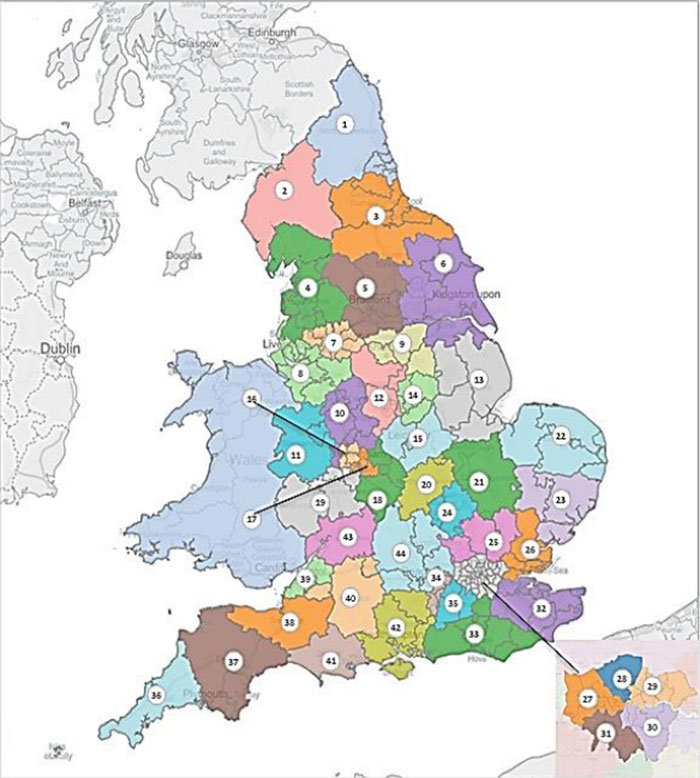
These areas will bring together health and care leaders, organisations and communities to develop local blueprints for improved health, care and finances in regional areas known as footprints. It takes forward part of the NHS’ Five Year Forward View.
Eight leaders of the areas have been named, including two local authority chiefs – Manchester City Council’s Sir Howard Bernstein will lead the Greater Manchester footprint, while Birmingham City Council chief Mark Rogers will lead the Birmingham and Solihull footprint.
Each area will now work on local plans to bring together local health and care leaders, organisations and to develop new models of care.
The NHS called for the formation of the STP areas last December to ensure that health and care services were planned in local areas over a period of five years, rather than annually. Each area also needs to set out how it will meet the ‘triple aim’ in the Five Year Forward View of improved health and wellbeing, transformed quality of care delivery, and sustainable finances.
Populations in the areas range from 300,000 (in West, North and East Cumbria) to nearly 3 million people (in Greater Manchester). They include five local areas within London, and many which are in line with county boundaries to boost integration.
Nearly half of the £3.8bn funding increase for the NHS next year is being ringfenced in a sustainability and transformation fund that will fund these local reform proposals. STPs will then become the single application and approval process for being accepted onto programmes with transformation funding from 2017/18 onwards.
NHS England chief executive Simon Stevens said the NHS must not duck the big local choices needed to improve health and care across England over the next five years, and the plans were a way of doing this.
“Their success will largely depend on the extent to which local leaders and communities now come together to tackle deep-seated and long-standing challenges that require shared cross-organisational action,” he stated. “The NHS nationally will be working closely to support them in doing that.”
Jim Mackey, the chief executive designate of NHS Improvement, said: “Everyone accepts that change is needed within the NHS. We need to create a health and care system that meets the needs of patients and is sustainable for the long term.
“Improvement within the NHS needs organisations to work strategically within their local health economy. We need the Sustainability and Transformation Plans to encourage organisations to work together, to think boldly and to work out how change – no matter how radical – can best be achieved to meet the major challenges we face.”
Rogers added the STP areas can make some pretty seismic changes to the way services can address the needs of local people at a time when quality, services and finances are all under immense pressure. “I look forward to working collaboratively with the many organisations who can – and must – act together and in harmony to improve our citizens’ lives.”
The full list of leaders named for the new areas is:
Dr Amanda Doyle, chief clinical officer of NHS Blackpool Clinical Commissioning Group and co-chair of NHS Clinical Commissioners (Lancashire and South Cumbria footprint);
Sir Andrew Morris, chief executive of Frimley Health NHS Foundation Trust (Frimley Health footprint)
Angela Pedder, chief executive of the Royal Devon & Exeter NHS Foundation Trust (Devon footprint)
David Sloman, chief executive of the Royal Free London NHS Foundation Trust (North Central London footprint)
David Smith, chief executive of NHS Oxfordshire Clinical Commissioning Group (Buckinghamshire, Oxfordshire and Berkshire West footprint)
Sir Howard Bernstein, chief executive of Manchester City Council (Greater Manchester footprint)
Mark Rogers, chief executive of Birmingham City Council and President of the Society of Local Authority Chief Executives (Birmingham and Solihull footprint)
Toby Sanders, accountable officer of NHS West Leicestershire Clinical Commissioning Group (Leicester, Leicestershire and Rutland footprint)





















